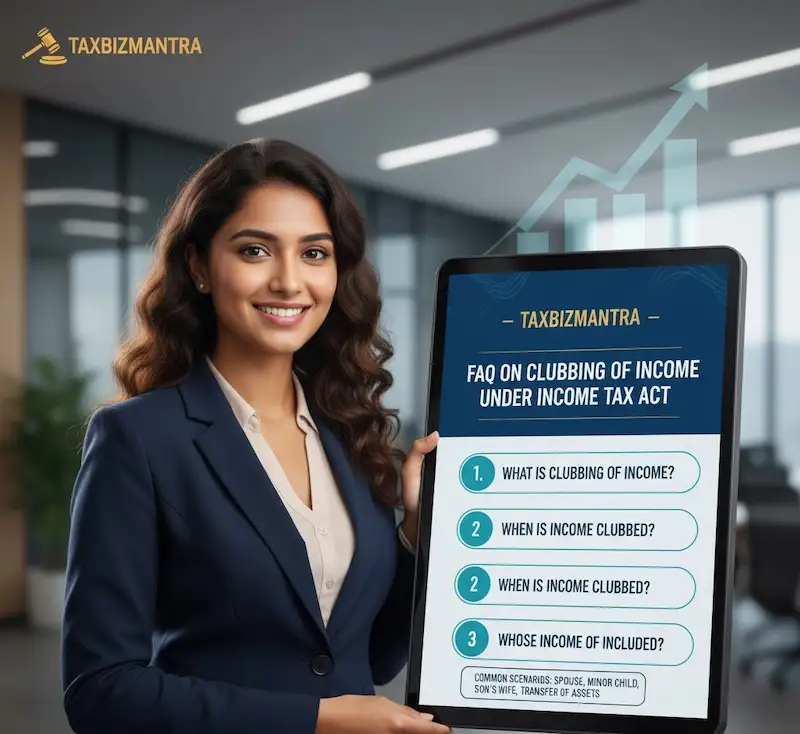Stop Tax Avoidance: Practical FAQs on Clubbing of Income (Sections 60–64)
The principle of clubbing of income prevents taxpayers from avoiding tax by transferring income or assets to others (especially relatives or minors) while retaining control or benefit.
These FAQs explain what clubbing of income means, its applicable sections, common situations, and how to report such income correctly in your return.
Want more? Please refer our resources hub and Tools hub page.
Frequently Asked Questions— Clubbing of Income
Pro Tips
- Always maintain gift deeds or transfer documents showing adequate consideration.
- Declare minor child’s exempt income separately to claim ₹ 1,500 u/s 10(32).
- If you gift money to your spouse for investment, subsequent income (interest, dividends) is taxable in your hands.
- Use Schedule SPI (Specified Persons’ Income) correctly — missing this may trigger notices.
- Plan transfers carefully; avoid revocable clauses unless necessary.
Quick Checklist
1️⃣ Identify any income/assets transferred to relatives or minors.
2️⃣ Review if consideration or control exists — if not, clubbing applies.
3️⃣ Add minor-child income with the higher-income parent.
4️⃣ Report details in Schedule SPI (Specified Persons’ Income)
5️⃣ Keep gift/transfer evidence for scrutiny.
Related Resources
- Deductions (Chapter VI-A)
- Loss Set-off & Carry Forward — FAQs
- Capital Gains — FAQs
- Computation of Tax — FAQs
- Income Tax Calculator Tool

When Someone Else’s Income Becomes Yours — Clubbing of Income FAQs
Sources
Disclaimer: These FAQs on Clubbing of Income are prepared for general informational purposes only, based on Sections 60 to 64 of the Income-tax Act 1961 and the Finance Act 2025. They do not constitute professional advice. For specific queries, consult the official Income Tax Department or a qualified Chartered Accountant.
